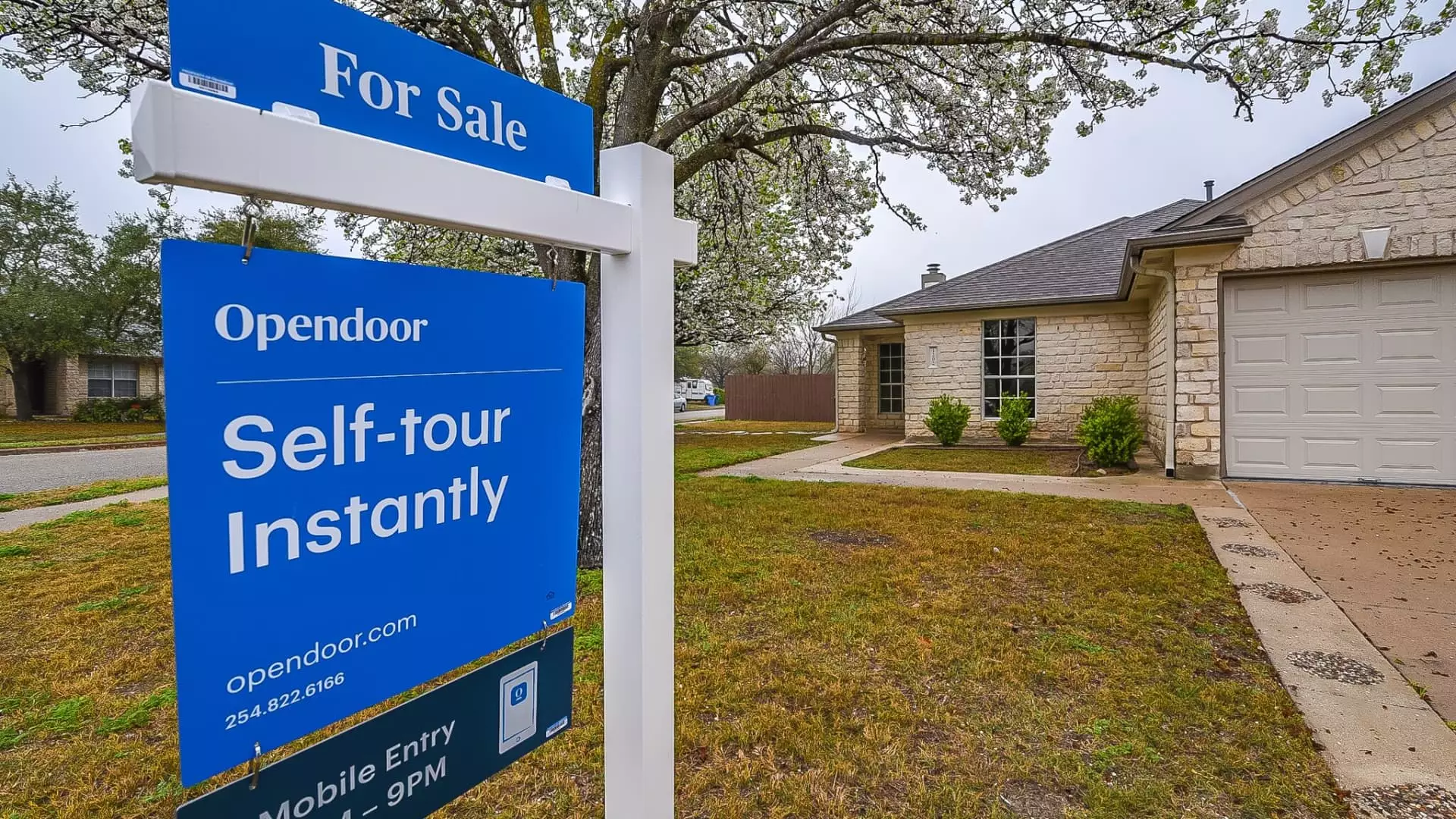Opendoor’s recent stock surge, rising nearly fivefold since July, feels more like a fleeting mirage than a sign of genuine recovery. While investors have shown enthusiasm, it’s crucial to question whether this optimism is justified or merely speculative exuberance fueled by temporary catalysts. The core issues that hamstrung Opendoor prior to this rally are not suddenly resolved; they are masked by market volatility and the fleeting influence of hedge fund endorsements. The sharp after-hours decline of over 20% signals that even the markets remain skeptical about the sustainability of this apparent turnaround. The euphoria distracts from a deeper crisis within the company’s fundamental business model and long-term viability.
From Desperation to Illusion
Just a few months ago, Opendoor’s shares were trading at embarrassing lows—around fifty-one cents—and the company was contemplating drastic measures like a reverse stock split to maintain its Nasdaq listing. Such desperate strategies highlight how fragile their financial health was. The turnaround, however, seems to hinge more on hope than on tangible operational improvements. The cancellation of the reverse split—perhaps signaling some stabilization—is no guarantee that the underlying issues fueling investor concerns have been addressed. The company’s dependence on short-term market movements and sentiment-driven enthusiasm suggests a precarious foundation unfit for long-term stability.
Structural Flaws Left Unaddressed
At its core, Opendoor’s business model is fundamentally challenged by macroeconomic shifts. The company, founded in 2014 and going public amid the Covid-19 real estate boom, rode a wave of near-zero interest rates and soaring home prices. When inflation and interest rates surged in 2022, borrowing costs skyrocketed, dampening demand and causing revenue to plummet by approximately 66%. This structural vulnerability remains unfixable through mere market optimism. The 2022 decline in revenue from $15.6 billion to $5.2 billion underscores how sensitive this business is to monetary policy and housing market cycles. Any expectation that a switch to less capital-intensive referral models can swiftly reverse these trends seems overly optimistic when macroeconomic headwinds persist.
Speculative Hopes and Hedge Fund Hype
The recent rally was significantly influenced by hedge fund manager Eric Jackson, who predicted a future share price of $82—a stark contrast to the current $2.52. His belief hinges on the hope that by regaining market share and returning to revenue growth, Opendoor can reach profitability. Yet, such forecasts often seem more like bold bets than grounded analysis, especially given the company’s current trajectory. Meanwhile, recent quarterly results paint a skeptical picture: a modest 4% revenue increase to $1.57 billion doesn’t come close to offsetting prior losses, with a projected decline in upcoming earnings. Relying on a future turnaround driven by investor optimism ignores the hard truth—without significant operational change, these hopes remain unfulfilled.
Strategic Shift or Grand Deception?
CEO Carrie Wheeler speaks of a “most important strategic shift” into a less capital-intensive referral business, but calls this a game-changer risk sounding more like an elusive promise than a concrete plan. While increased visibility and broader storytelling are positive, they do little to change the core business challenges. Market demands concrete, sustainable growth, not ideological pivots that merely mask ongoing losses. If anything, this shift indicates a retreat from the aggressive buying and flipping that led to heavy losses, but whether it will generate durable profitability remains uncertain. Investors might be dazzled by this rebranding, but the reality persists: without addressing fundamental issues—declining demand, rising operational costs, and macroeconomic headwinds—Opendoor’s future remains uncertain at best.
The Reality Behind the Revival Fantasy
There’s an undeniable allure in watching a battered company suddenly gain momentum, but it’s essential to remain critically cautious. Market surges driven by hype and speculative bets should not obscure rigid realities: Opendoor’s core financial struggles, dependency on macroeconomic factors outside its control, and questionable strategic pivots. The company’s current trajectory is more a gamble on investor sentiment than a sign of true resilience. A closer examination reveals that what appears to be a revival is more a temporary bounce fueled by short-term trading and hype—an illusion that risks further disillusionment when the fundamentals inevitably reassert themselves.


Leave a Reply